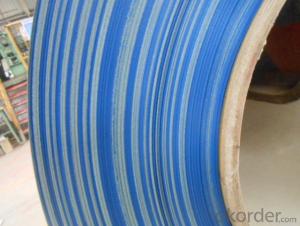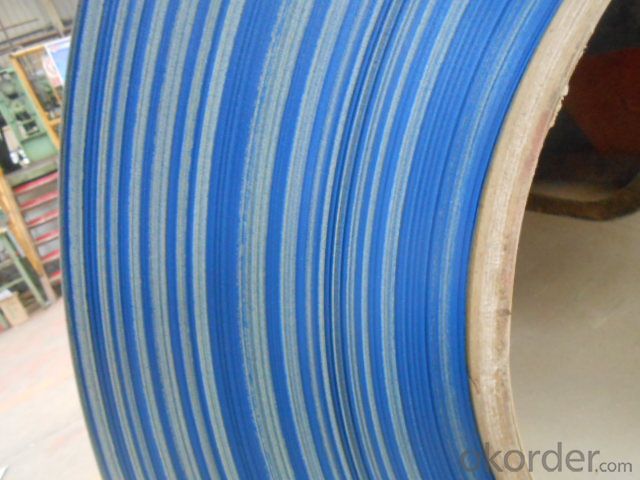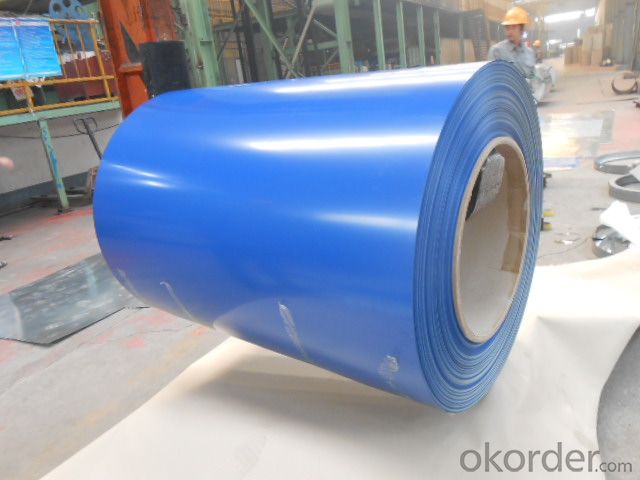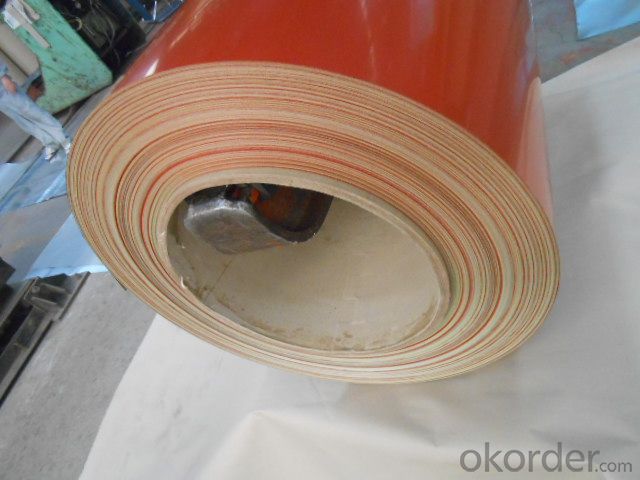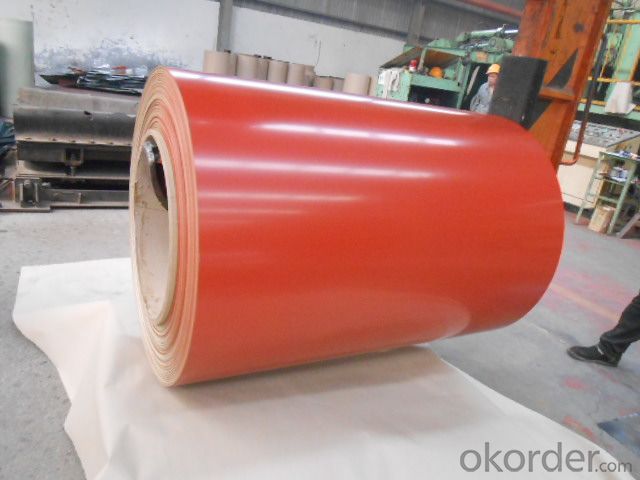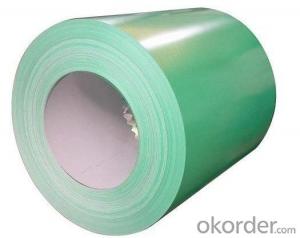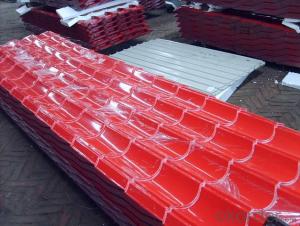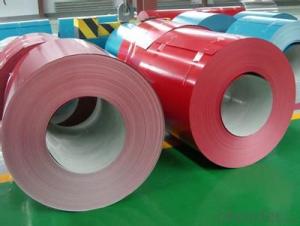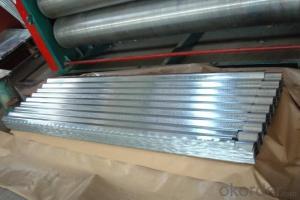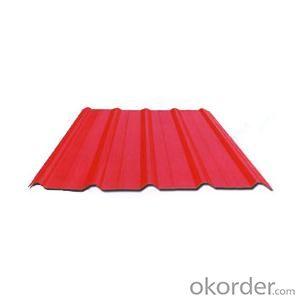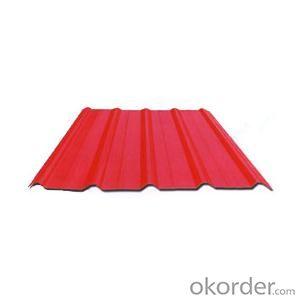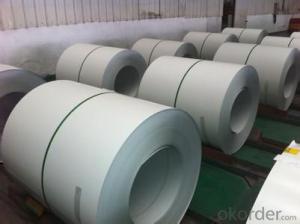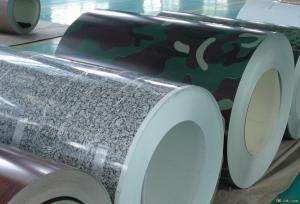Pre-Painted Galvanized/Aluzinc Steel roll - Best Quality in China
- Loading Port:
- China main port
- Payment Terms:
- TT OR LC
- Min Order Qty:
- 50 m.t.
- Supply Capability:
- 10000 m.t./month
OKorder Service Pledge
OKorder Financial Service
You Might Also Like
Pre-Painted Galvanized/Aluzinc Steel roll - Best Quality in China
With GI as base material, after pretreatment (degrease and chemical treatment ) and liquid dope with several layers of color, then after firing and cooling, finally the plate steel is called pre-painted galvanized (aluzinc) steel. Pre-painted galvanized steel is good capable of decoration, molding, corrosion resistance. It generally displays superior workability, durability and weather resistance.
2.Main Features of the Pre-Painted Galvanized/Aluzinc Steel Coil:
• Excellent process capability
• Smooth and flat surface
• Workability, durability
• Excellent heat resistance performance
• High strength
• Good formability
• Good visual effect
3.Pre-Painted Galvanized/Aluzinc Steel Coil Images
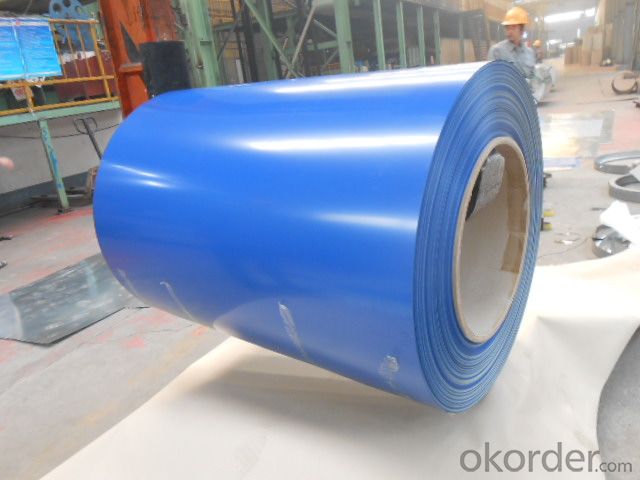
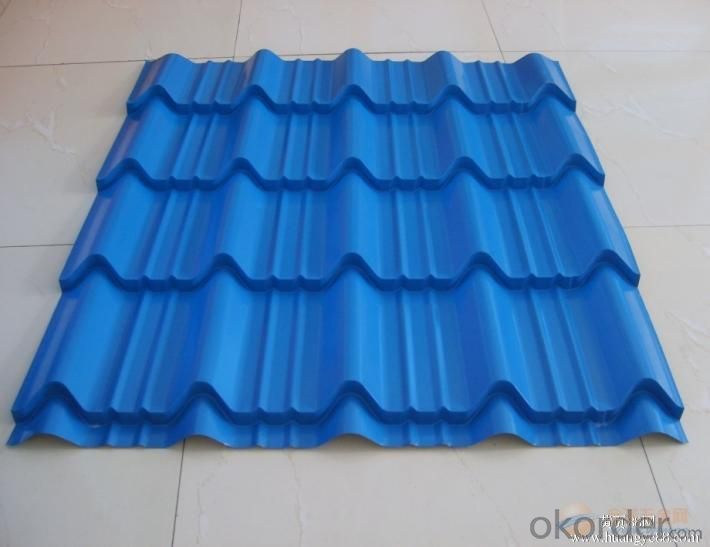
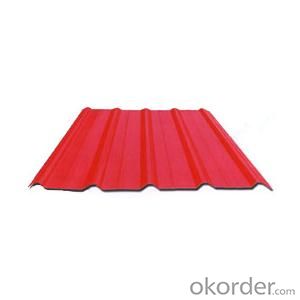
4.Pre-Painted Galvanized/Aluzinc Steel Coil Specification
Standard: AISI, ASTM, BS, DIN, GB, JIS
Grade: DX51D, DX52D
Thickness: 0.17-2.0mm
Brand Name: KMRLON
Model Number: coil
Type: Steel Coil
Technique: Cold Rolled
Surface Treatment: Coated
Application: Boiler Plate
Special Use: High-strength Steel Plate
Width: 20-1250mm
Length: customized
commoidty: pre-painted galvanized steel coil
Thickness: 0.13-4.0mm
width: 20-1250mm
zinc coating: 40-180g/m2
printing thickness: top side: 20+/-5 microns, back side: 5-7 microns
color: all RAL color
surface treatment: color coated
coil weight: 4-7 tons
coil ID: 508/610mm
packaging: standard seaworthy packing
5.FAQ of Pre-Painted Galvanized/Aluzinc Steel Coil
1. What’s the application of this product?
Roof, roof structure, surface sheet of balcony, frame of window, etc.
2. What’s the brand of the paint?
We use the best brand of all of the word—AKZO.
3. How to guarantee the quality of the products?
We have established the international advanced quality management system,every link from raw material to final product we have strict quality test;We resolutely put an end to unqualified products flowing into the market. At the same time, we will provide necessary follow-up service assurance.
4. How long can we receive the product after purchase?
Usually within thirty working days after receiving buyer’s advance payment or LC. We will arrange the factory manufacturing as soon as possible. The cargo readiness usually takes 15-25 days, but the shipment will depend on the vessel situation.
- Q: what is the differance between ceramic and stainless steel headers and 4-2-1 and 4-1 and which are better for racing and should i get ceramic or stainless steel headers???? for a 98 civic
- This Site Might Help You. RE: ceramic vs stainless steel headers HELP!!!!!!!!!!!!!! for a 98 civic? what is the differance between ceramic and stainless steel headers and 4-2-1 and 4-1 and which are better for racing and should i get ceramic or stainless steel headers?? for a 98 civic
- Q: What are the common applications of stainless steel coils?
- Stainless steel coils have a wide range of applications due to their unique properties and characteristics. Some of the most common applications of stainless steel coils include: 1. Automotive industry: Stainless steel coils are widely used in the automotive industry for various components such as exhaust systems, mufflers, and catalytic converters. The corrosion resistance and durability of stainless steel make it an ideal choice for these applications. 2. Construction industry: Stainless steel coils are extensively used in the construction industry for structural elements, roofing, cladding, and facades. Its high strength, resistance to corrosion, and aesthetic appeal make stainless steel a popular choice for architectural projects. 3. Kitchen appliances: Stainless steel coils are commonly used in the manufacturing of kitchen appliances such as refrigerators, stoves, ovens, and dishwashers. The easy cleanability, resistance to heat and stains, and hygienic properties of stainless steel make it a preferred material for these applications. 4. Food processing industry: Stainless steel coils are widely used in the food processing industry for equipment such as tanks, pipes, and conveyor systems. The corrosion resistance and easy cleanability of stainless steel ensure the integrity and hygiene of food products. 5. Medical industry: Stainless steel coils find extensive use in the medical industry for various applications such as medical devices, surgical instruments, and implants. The biocompatibility, strength, and resistance to corrosion make stainless steel an ideal material for these critical healthcare applications. 6. Energy sector: Stainless steel coils are used in the energy sector for applications such as heat exchangers, boilers, and pipelines. The high-temperature resistance, excellent mechanical properties, and corrosion resistance of stainless steel make it suitable for these demanding applications. 7. Chemical industry: Stainless steel coils are employed in the chemical industry for storage tanks, piping systems, and reactors. The corrosion resistance and ability to withstand high temperatures and aggressive chemicals make stainless steel coils a reliable choice for handling various chemical substances. 8. Manufacturing industry: Stainless steel coils are used in a wide range of manufacturing processes such as stamping, forming, and fabrication. The versatility, durability, and ease of machining of stainless steel make it a popular choice for various industrial applications. Overall, the common applications of stainless steel coils are vast and varied, thanks to their exceptional properties like corrosion resistance, strength, durability, and aesthetic appeal.
- Q: How is the thickness of a steel coil measured?
- The thickness of a steel coil is typically measured using a tool called a thickness gauge, which is capable of accurately determining the thickness of the steel through direct contact.
- Q: How are steel coils used in the manufacturing of engine components?
- Steel coils are used in the manufacturing of engine components as they provide strength and durability. They are typically processed and shaped into various parts such as connecting rods, crankshafts, and camshafts, which are essential for the engine's functionality. The coils are formed, machined, and heat-treated to meet the precise specifications required for each component, ensuring optimal performance and reliability in engines.
- Q: How are steel coils used in the production of infrastructure materials?
- Steel coils are widely used in the production of infrastructure materials due to their durability, versatility, and strength. These coils are typically made from hot-rolled steel, which is formed into large rolls or coils for easy transportation and handling. One common application of steel coils in infrastructure materials is in the production of steel sheets and plates. These coils can be further processed to create flat sheets of steel, which are then used for various construction purposes. For example, steel sheets are frequently used in the manufacturing of bridges, highways, and buildings as they provide a strong and reliable material that can withstand heavy loads and adverse weather conditions. Another important use of steel coils in infrastructure materials is in the manufacturing of pipes and tubes. Steel coils are often processed into seamless or welded pipes that are utilized in the construction of water and gas pipelines, as well as in the transportation of various liquids and gases. Steel pipes and tubes are preferred in infrastructure projects due to their high strength, corrosion resistance, and ability to withstand high-pressure environments. Furthermore, steel coils are also used in the production of reinforcing bars or rebars, which are integral components in the construction of reinforced concrete structures. These rebars, made from coiled steel, are embedded within concrete to provide tensile strength and enhance the structural integrity of buildings, bridges, and other infrastructure projects. Steel coils allow for efficient production of rebars, ensuring a consistent quality and size for reinforced concrete constructions. In conclusion, steel coils play a crucial role in the production of infrastructure materials. Their use in the manufacturing of steel sheets, pipes, and rebars ensures the durability, strength, and reliability of infrastructure projects. By providing a versatile and robust material, steel coils contribute to the development of safe and long-lasting structures in our built environment.
- Q: Are steel pokemon weak against any attacks? If so, what types? (like water, grass, etc.)
- Thier weak aginst Fire type pokemon.
- Q: Can steel coils be coated with holographic patterns?
- Yes, steel coils can be coated with holographic patterns. The holographic coating can be applied to the surface of the steel coils, creating a visually stunning and unique effect.
- Q: my step father bought a big steel drum grill it has steel sheets (very thin) that go inbetween the flame and the food (closer to the flame) with that there the food will not cook, it does not get hot enough????? please help... what should we do
- yes that keeps the fat from dripping on the burners - just try it - it works.
- Q: How are steel coils used in the production of wire products?
- Steel coils are an essential component in the production of wire products. These coils are typically made from high-quality steel and are used as a raw material for wire drawing processes. Wire drawing is a manufacturing technique used to reduce the diameter of the steel coil and transform it into various wire products. To begin the process, a steel coil is placed on a wire drawing machine. The machine then pulls the coil through a series of dies, which are progressively smaller in size. As the coil passes through each die, the diameter of the wire is reduced, resulting in a thinner and longer strand of wire. This process can be repeated several times until the desired wire thickness is achieved. Once the wire is drawn, it can be further processed to create various wire products such as fencing, nails, screws, springs, and electrical wires. The wire can be cut to specific lengths, bent, or shaped according to the intended use. Additionally, it can undergo treatments such as galvanizing or coating to enhance its durability and resistance to corrosion. Steel coils provide several advantages in the production of wire products. Firstly, they offer a consistent and uniform material, ensuring that the resulting wire products have consistent quality and performance. Secondly, steel coils are easily transportable and can be stored efficiently, making them a cost-effective option for manufacturers. Lastly, the versatility of steel allows for the production of wire products with different tensile strengths and properties to meet specific industry requirements. In conclusion, steel coils play a crucial role in the production of wire products. They are the primary raw material used in wire drawing processes, where they are transformed into various wire products through a series of reduction steps. The resulting wire products find applications in a wide range of industries, making steel coils an indispensable component in the manufacturing sector.
- Q: What are the different methods of coil packaging for steel coils?
- There are several methods of coil packaging for steel coils, including stretch wrapping, strapping, banding, and shrink wrapping. Stretch wrapping involves wrapping a stretch film tightly around the coil to secure it. Strapping and banding use metal or plastic straps to hold the coils together. Shrink wrapping involves covering the coil with a plastic film that shrinks when heated, providing a tight and protective cover. These methods help to protect the coils during storage, transportation, and handling, ensuring they remain in good condition.
Send your message to us
Pre-Painted Galvanized/Aluzinc Steel roll - Best Quality in China
- Loading Port:
- China main port
- Payment Terms:
- TT OR LC
- Min Order Qty:
- 50 m.t.
- Supply Capability:
- 10000 m.t./month
OKorder Service Pledge
OKorder Financial Service
Similar products
Hot products
Hot Searches
Related keywords
